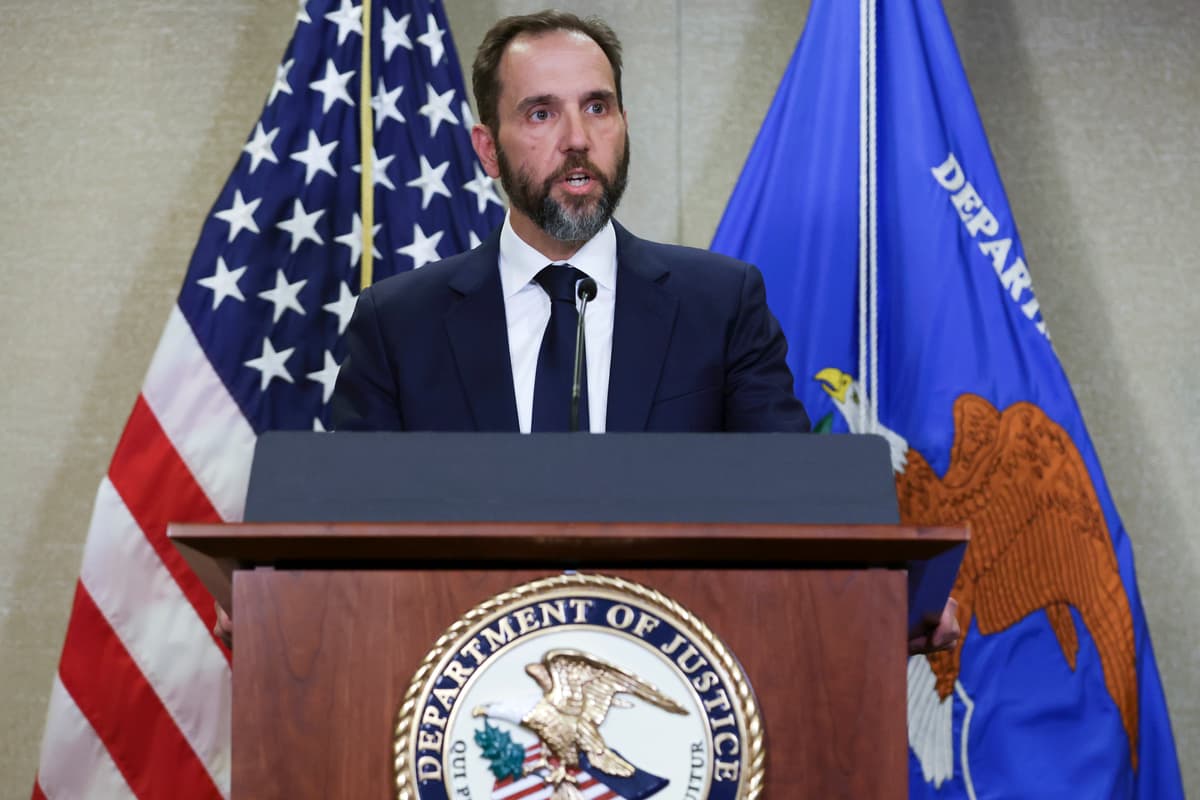Judge Cannon Deals Jack Smith, Merrick Garland a Final Defeat by Blocking Release of Mar-a-Lago Report
The Florida jurist finds ‘no historical precedent’ for plan to release a special counsel’s dossier while a case is ongoing.

Judge Cannon’s order on Monday blocking the release of Special Counsel Jack Smith’s final report on his Mar-a-Lago prosecution is a final defeat for Mr. Smith, whose time in the jurist’s Fort Pearce courtroom has been a record of futility.
Even before Judge Cannon’s order there was a dwindling possibility that the report would ever see the light of day, as it is now in the hands of the 47th president’s acting attorney general, James McHenry, an ally of the president.
Traditionally, when criminal charges are dropped or not filed in a federal prosecution, prosecutors do not release damaging information about their targets. The Mar-a-Lago charges against Mr. Trump, over hoarding classified documents at his Florida club, were dropped, and regardless, Judge Cannon had already thrown on the case on the basis that Mr. Smith’s appointment was illegal.
The law requires that special counsels submit a report at the end of their probe to the attorney general, who then has discretion over its release. Attorney General Garland aimed to release the dossier before Mr. Trump took the oath, though only to congressional leaders on the condition that they not disclose its contents.
That aim was thwarted by Judge Aileen Cannon, who first blocked the volume’s release and then, after a hearing on Friday, wrote in her order that “there is no ‘historical practice’ of providing Special Counsel reports to Congress, even on a limited basis, pending conclusion of criminal proceedings. In fact, there is not one instance of this happening until now.” During the Friday hearing, Judge Cannon asked the government “At the end of the day, what’s the urgency of doing this right now?”
The jurist reasons that the documents case is ongoing, on appeal, against Trump’s two employees and co-defendants — his valet, Waltine Nauta, and Mar-a-Lago’s property manager, Carlos De Oliveira. Judge Cannon ruled that Mr. Smith was unlawfully appointed and dismissed the charges against Messrs. Trump, Nauta, and De Oliveira. She was appointed to the bench by Mr. Trump in 2020, during the final days of his first term.
Mr. Trump is now free and clear due to immunity, and he can now pardon the other two or instruct his Department of Justice to drop the case, which is now in the hands of the United States attorney for the Southern District of Florida. If the case against Messrs. De Oliveira and Nauta is no longer ongoing, the logic of Judge Cannon’s order would no longer appear to apply. This weekend, Mr. Nauta was seen hovering behind Mr. Trump at a pre-inauguration party while his boss spoke to the chief executive officer of Amazon, Jeff Bezos, and his girlfriend, Lauren Sanchez.
For the moment, Mr. Smith’s appeal of his removal is still docketed before the 11th Circuit. Judge Cannon writes that against the desire of Messrs. Smith and Garland to release the report “on the other side of the balance there are two individuals in this action, each with constitutional rights to a fair trial, who remain subject to a live criminal appeal.”
Judge Cannon also appears skeptical of the ability of congressional leaders to keep a secret, even under a court order. She writes that “Given the very strong public interest in this criminal proceeding and the absence of any enforceable limits on the proposed disclosure, there is certainly a reasonable likelihood that review by members of Congress as proposed will result in public dissemination.”
Shortly before the Inauguration, Judge Cannon allowed the release of the first volume of Mr. Smith’s report, which covered the election interference prosecution and referred to the president as a criminal. Mr. Trump was the sole defendant in that case, and the DOJ moved to dismiss the charges after he won the presidential election in November. She writes, though, that this election interference volume contains “detailed and voluminous discovery information” whose release could injure Messrs. Nauta and De Oliveira.
The Judge explains that this volume contains information which “has not been made public in Court filings. It includes myriad references to information provided by the Special Counsel in discovery and subject to the protective order, including interview transcripts, search warrant materials, business records, toll records, video footage … and other non-public information.”

